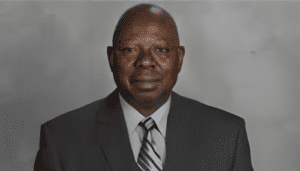Insecurity: Any role for ex-servicemen?
Insecurity in Nigeria is not only a threat to the safety of humans. It also has wide reaching implications for food security and the economy.
It is safe to argue that since the nation gained political independence in 1960, apart from the civil war period, the country has not faced a more security challenge as it has in the past decade.
Thousands of lives have been lost, farmers are being displaced from their farmlands while kidnappers that once prowled the highways now lurk around their prey in the cities while Boko Haram menace has not stopped.
Mitigating the factors that make the security challenge fester as well as stopping it has become Nigeria’s number one priority because no nation thrives under a security crisis.
Doing so will make Nigerians feel safe in their country once more, restore foreign investors’ confidence and put less pressure on the nation’s security structure.
Parts of the country that seemed to be safe from the challenge such as the Federal Capital Territory (FCT) and Kwara now also feel the heat.
According to data curated by the Armed Conflict Location & Event Data Project (ACLED), in 2023 more than 8,119 people were killed in more than 4,326 violent events across Nigeria.
ACLED is a US.-based disaggregated data collection, analysis, and crisis mapping project that uses real-time data and analysis sources on political violence and protests worldwide.
Security experts have suggested different approaches to solving the problem include the now famous ‘carrot and stick’ method, as well as outright onslaught against the criminals.
However, other experts say the nation’s security chiefs could harness the experience and knowledge of ex-servicemen as they seek to end the challenge.
In 2023 the immediate past Chief of Defence Staff (CDS), retired Gen. Lucky Irabor, once mooted the idea of incorporating retired military personnel to help in the fight against insecurity.
According to him, retirees can combine their experience of living with civilians as retirees and their military background to provide intelligence that can help in efforts to secure the country.
“To make a significant impact in ensuring that peace takes pre-eminence in the country, we need to fall back on the retired military officers.
“This is because they also live among the people, thereby having a lot to offer regarding security issues.
“Once a military officer, you remain a military officer for life, whether serving or retired. The motto of the country, which is ‘Unity, Peace and Faith,’ is what we swore to defend, and we are committed to it,” he had said.
However, Chief Akpodiogaga Emeyese, one time member representing Ethiope East Federal Constituency in the House of Representative, thinks otherwise.
According to him, having retired at 60 years, age is no longer on the side of the retirees to execute assignments such as engaging in rigorous security activities.
He added that young people tend to take up more risky responsibilities than persons above the age of 60 years even though they may still be strong and willing to carry out such assignments.
“Thus, using retired military personnel to resolve our security challenges may not be the best of ideas,” he said.
Similarly, retired Capt. John Ojikutu, an Aviation/Security expert, said that bringing back ex-servicemen was not the solution to fighting insecurity in the country.
Ojikutu said that there was the need for Nigeria to return to the drawing board and begin to do things the way they were done before.
He also faulted the idea of changing the Nigerian Police to the Nigerian Police Force as well as all security agencies trying to carry out the same responsibility,
He opined that such tactics would not yield any positive result, and argued that each security agency ought to work within a specific role, though they must all share intelligence to achieve a common feat.
He said that intelligence must only be shared among the security agencies, adding that not all intelligence should be shared with members of the public.
“I don’t believe in this idea of everybody carrying guns. The police, army and even the NDLEA and Civil Defence.
“As a country, we cannot continue that way at all because we cannot get results.
“Can we go back to how we were doing it? I think what should be done is to look for people that were doing it before and we were getting results.
“Let’s talk to these people and ask them how they were handling internal security before.
“If security is going to be on one agency, then you have intelligence following behind, then you get the information, and they do the analysis,” explained.
Secretary General, Armed Forces Veterans Federation of Nigeria, Dr Awwal Abdullahi, also thinks that the veterans have a role to play in securing the country.
Abdullahi, who is also the spokesperson of the Ministry of Defence Ministerial Committee on Armed Forces, Veterans Welfare said that ex-servicemen could be re-engaged into the fold of the armed forces.
He agrees with Irabor that ex-servicemen may not necessarily be engaged in physical combat but could be useful in intelligence gathering and information dissemination.
He said that having served in the military and now residing among civilians has given them “double experience which will be very useful in what we call technological intelligence gathering warfare.”
He explained that technological in that context meant intelligence gathering using the latest technology, while warfare involves the use of humans to get technical intelligence.
“This is one aspect that can be very, very useful and the federal government can decide to engage us back into the services or provide service of intelligence, technological intelligence and warfare intelligence.
“When I say warfare intelligence it doesn’t mean we have to carry guns to go and start fighting.
“No, we can be reengaged to provide the necessary credible intelligence, timely intelligence, useful intelligence that will mitigate the challenging situation that Nigeria is having in terms of security,” he said.
Another veteran, a retired captain who preferred to be anonymous said that the insecurity in the country was not something unexpected.
He, however, urged the government to find a way of involving retired army generals as think tanks to profile pieces of advice.
“Veterans can help. Let the government call on them. Let them give them a task to do. Let them commission them to do this or do that.
“We have handled arms before and we can still handle them,” he said.




